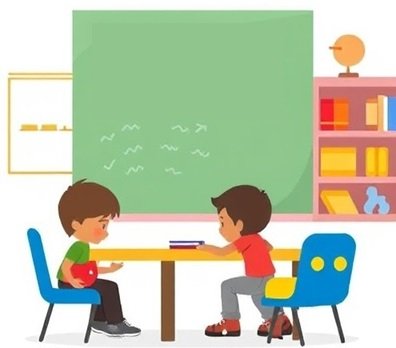Have you ever wondered why some kids seem to manage schoolwork and daily tasks with ease while others struggle to stay organized or finish their homework? The answer often lies in a set of mental skills called executive function. These skills act like the brain’s command center, helping us plan, focus, and get things done. For children with learning differences (LD), challenges with executive function can make school and life feel much harder than they should be.
What Are Executive Function Skills?
Executive function is like your brain’s manager. It helps you stay on top of things, solve problems, and adapt when things don’t go as planned. These skills can be broken down into three main areas:
- Working Memory: This is your brain’s sticky note. It helps you hold on to information long enough to use it, like remembering the steps to solve a math problem.
- Cognitive Flexibility: This is your ability to switch gears and think about things in new ways. It’s what helps you adapt when your first plan doesn’t work.
- Inhibitory Control: This helps you think before you act, resist distractions, and stay focused on what matters.
These skills are crucial for everyday life—whether it’s solving puzzles, keeping track of your stuff, or working well with others.
How Executive Function Affects Learning
Executive function skills are like the tools in a student’s backpack—absolutely essential for success in school. Here’s how they make a difference:
- Staying Organized:
- Kids with strong executive function can keep track of assignments, manage their time, and plan ahead. Without these skills, staying on top of schoolwork becomes a major challenge.
- Paying Attention:
- Staying focused in class is hard when your brain struggles to block out distractions. This is where inhibitory control comes in.
- Solving Problems:
- Being flexible in your thinking helps kids tackle new challenges and look at problems from different angles—an essential skill in learning.
- Managing Emotions:
- School can be stressful, and kids need to regulate their emotions to stay calm and focused. Emotional control is a key part of executive function.
Executive Function Challenges in Kids with LD
For kids with learning differences, weak executive function skills can make even simple tasks feel overwhelming. They might:
- Struggle to Follow Instructions: Remembering and completing multi-step directions can feel impossible.
- Procrastinate: Starting tasks can be tough, leading to missed deadlines.
- Act Impulsively: Blurt out answers or interrupt others without meaning to.
- Lose Track of Things: Misplace homework, forget assignments, or show up unprepared.
These struggles can affect their confidence and make school a source of frustration instead of growth.
Helping Kids Build Executive Function Skills
The good news? Executive function skills can improve with practice and support. Here’s how parents and teachers can help:
- Break Tasks into Steps:
- Big assignments can feel less overwhelming when broken into smaller, manageable parts.
- Use Visual Aids:
- Charts, checklists, and schedules can help kids stay organized and remember what to do next.
- Teach Time Management:
- Tools like timers and routines can help kids learn how to use their time wisely.
- Encourage Mindfulness:
- Simple practices like deep breathing can help kids stay calm and focused, even during stressful moments.
- Celebrate Success:
- Recognizing small wins can boost a child’s confidence and motivate them to keep trying.
Why Parents and Teachers Matter
Supporting a child’s executive function development is a team effort. When parents and teachers work together—sharing tips, strategies, and observations—children get the consistent support they need. A nurturing environment where kids feel safe to try, fail, and try again can make all the difference.
Final Thoughts
Executive function is the foundation for learning and growing. For kids with learning differences, building these skills can open doors to new possibilities and achievements. With patience, encouragement, and the right strategies, we can help every child unlock their potential and navigate their world with confidence.
